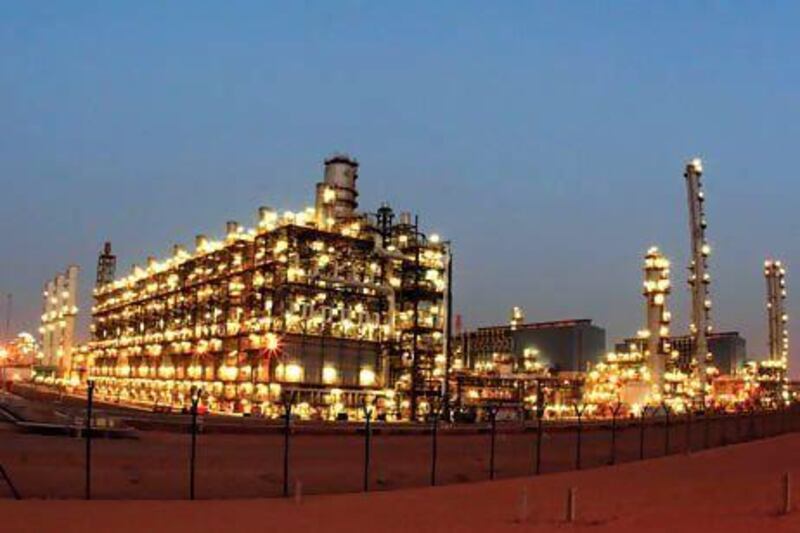Borouge, Abu Dhabi's flagship petrochemical company, is on an expansion drive as part of a plan that promises to create a swathe of new jobs across the UAE.
"The petrochemical industry is an industry creating jobs, and quality jobs," said Wim Roels, the chief executive of the company's marketing arm.
"From the production side to the next phase, which is innovation and development and R&D [research and development], it requires highly educated people, and that is the opportunity that the chemical and petrochemical industry brings to Abu Dhabi and the UAE."
Emiratisation is central to the company's expansion plans with jobs for nationals a key plank in the strategy.
Borouge's plans were revealed on the same day that Sheikh Khalifa, President of the UAE, announced a new Emiratisation drive that aims to create thousands of jobs for nationals.
A joint venture between Abu Dhabi National Oil Company and Austria's Borealis, Borouge is cooperating with academics locally and in Austria to grow the company's numbers. It currently employs 650 nationals.
"We are growing the amount of Emiratis in all kinds of positions rapidly. But of course it takes a lot of time to get the required people," said Mr Roels.
Borouge is by far the biggest petrochemicals producer in the UAE. Its second expansion project, Borouge 3, will increase company output by 2.5 million tonnes to a total of 4.5 million by mid-2014.
The industry as a whole now employs about 8,000 people in the country, 2 per cent of the total industrial workforce, according to figures by the Gulf Petrochemicals and Chemical Association.
Compared to Saudi Arabia, which has for some time made a concerted effort to spur employment via hydrocarbon-based industry, the UAE's petrochemical industry is still in its infancy.
Across the Arabian Gulf as a whole, 34,564 jobs were created in petrochemical production during 2010 and last year, an increase of 11 per cent.
Key to job growth is the move into more specialised products that are based on the primary resins derived from oil and gas. Downstream products, such as plastics used in consumer goods, require more manpower than upstream production.
In Saudi Arabia, the petrochemical giant Saudi Basic Industries Corporation (Sabic) is feeding its chemicals to plastics producers such as Tasnee. With its growing output, Borouge will help to develop the downstream industry in the UAE.
"The more downstream it goes, the more labour intensive it becomes. Our presence here is a catalyst for bringing more downstream conversion industry into the Emirates," said Mr Roels. Borouge would increasingly become a more diversified producer, he added.
His views are echoed by others active in the industry.
"The challenge is that operating a process plant just doesn't take hundreds and hundreds of people. But those downstream derivatives and the other markets that those create, that's where the job creation really is," said David Seaton, the chief executive of Fluor, an American engineering company with extensive experience in building the petrochemicals industry worldwide.
Not only does the petrochemical industry feed into a diverse, labour intensive downstream industry, it also requires a support system that in turn grows employment.
"It creates ancillary industries around it as well, because the supply chain is different from your typical hydrocarbon supply chain," said Omar Boulos, the regional director for the consultancy Accenture in the Middle East.
Mr Boulos warned that governments driving the growth of the industry should take the requisite steps to ensure that locals can take advantage of the job opportunities that are opening up.
"What really is required here is that the demand is well understood, so supply can adapt to it."





